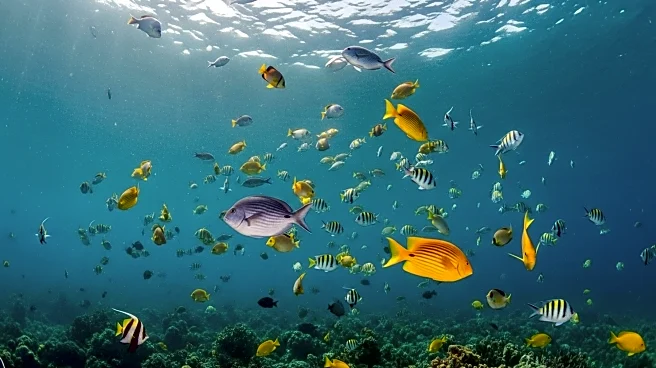What's Happening?
The World Trade Organization (WTO) has implemented a landmark agreement to curb billions of dollars in subsidies that contribute to overfishing. This agreement, which took over 20 years to negotiate, prohibits governments from providing subsidies for overfished stocks and fishing in international waters beyond their jurisdictions. The deal was formally ratified by Brazil, Kenya, Tonga, and Vietnam, marking the first WTO agreement to take effect since 2017. The agreement aims to help global fish stocks recover, benefiting local fishers who rely on a healthy ocean. Poorer states will have access to a fund to ease their transition into the deal. The agreement will expire in four years if more comprehensive rules are not agreed upon.
Why It's Important?
The implementation of this agreement is crucial for the recovery of global fish stocks, which have been severely depleted due to overfishing. By prohibiting subsidies that encourage overfishing, the WTO aims to create a more sustainable fishing industry. This move is expected to benefit local fishers and communities that depend on marine resources for their livelihoods. Additionally, the agreement represents a significant step in international cooperation to address environmental challenges and promote sustainable practices. The success of this agreement could pave the way for further international efforts to tackle other pressing environmental issues.
What's Next?
Negotiations on further fishing rules covering divisive issues excluded from the first deal are ongoing. The WTO Director-General, Ngozi Okonjo-Iweala, has expressed optimism that the body could conclude these talks or find a way to prevent the first deal from expiring. The agreement's expiration in four years places pressure on member states to reach a consensus on more comprehensive rules. The outcome of these negotiations will determine the long-term impact of the agreement on global fish stocks and the fishing industry.









